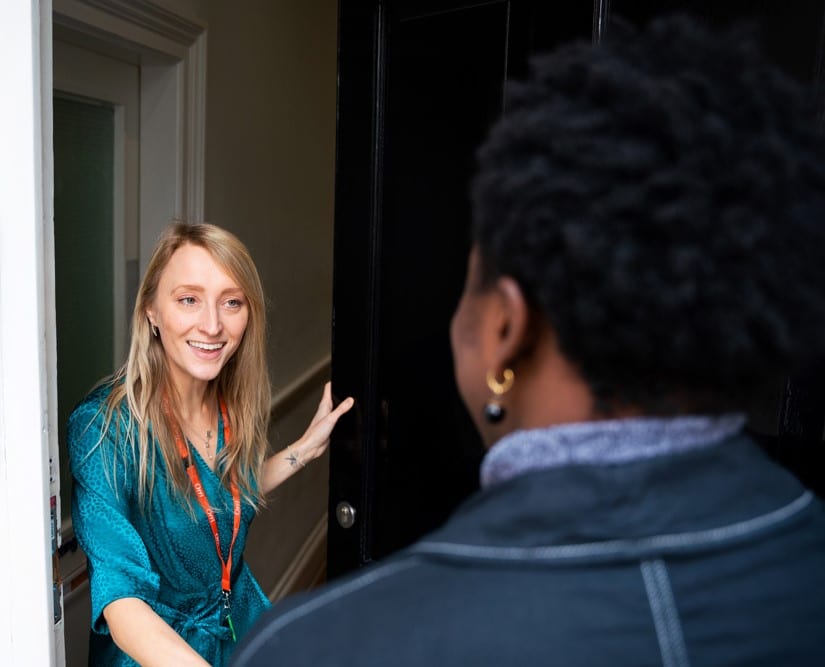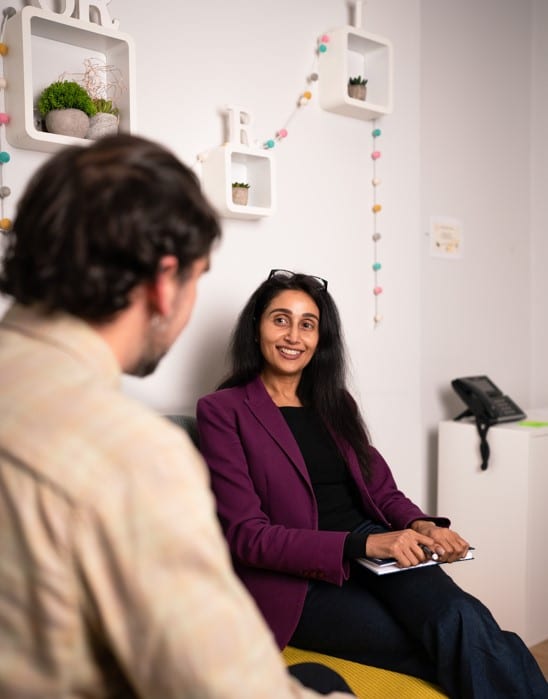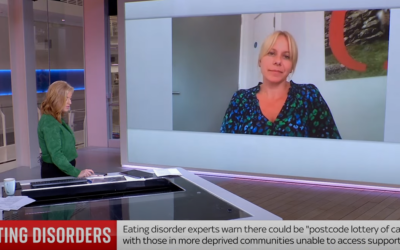Welcome to Orri.
Your Eating Disorder Treatment Clinic.
Where recovery is possible.
Intensive Day Treatment and Outpatient Services
We can do this together…

Intensive day treatment programmes and outpatient services
We are the only CQC-rated ‘Outstanding’ specialist eating disorder clinic in the UK.
Offering tailored day treatment programmes and outpatient services, treatment evolves with each individual client and keeps them connected to their everyday lives.
At the heart of our approach is a commitment to working collaboratively; providing expert, evidence-based and innovative treatment with kindness and compassion at its core.
We know it’s a difficult journey, but we’re here to walk alongside you to ensure recovery becomes possible for all.
Wherever you are, we’ll meet you there.
This might be your first time reaching out for eating disorder treatment. Or, it might feel like you’ve already tried every treatment in the world.
Wherever you find yourself, we’ll meet you there.
We know that there can be a lot of unknowns at this stage. Emotions may be heightened, and the prospect of treatment might feel incredibly daunting.
It takes bravery and courage to reach out for support, so we’ll honour that by taking things at your pace, step by step.
Together, we’ll explore your options and find a programme that suits your needs and evolves with you in your recovery journey.


We’re here for
parents and families.
Eating disorders affect the family too. At Orri, we treat every person impacted by an eating disorder, inviting you to be a part of your loved one’s journey whilst navigating your own.
Through Family Therapy, Individual Carer Psychotherapy, or programme review meetings, we’ll take time to talk, understand, and help you to support them in recovery.
Every person – not just the individual with the eating disorder – goes through a recovery journey of their own.
We’re here to support you through yours.
A supportive community.
Your journey with Orri.
Recover in person, online, or with a blend of both.
Day Treatment
An intensive programme of treatment where clients work side-by-side with expert clinicians as part of a recovery community.
Outstanding care is what we do, kindness makes us Orri
Our programmes focus on recovery: where you want to get to, not just what you’re recovering from.
Our approach provides you with the opportunity to address all the different parts of yourself and your everyday life, recognising that eating disorders are not just about food, but impact all areas of someone’s life and relationships.
Everyone’s recovery is different, so our programmes recognise
and reflect that.
What might recovery look like for me?
If you’d like to learn more or if you’re concerned for a loved one, we’re here to listen without judgement. We can help.

Our blog.
Hear from our team and clients.
ARFID stands out amongst other eating disorders due to its unique characteristics and diagnostic criteria. This blog post explores further.
Many individuals living with ARFID have been mistakenly labelled as “picky eaters”. Here’s how they differ.
Your non-negotiables hold yourself accountable in eating disorder recovery. We explore more in this blog.
“Scared is what you’re feeling. Brave is what you’re doing.” Our social media community share how they have been brave in their recovery this August.
Eating disorder recovery requires bravery. It requires someone to show up for themselves, every day, and communicate their needs to loved ones and professionals around them.
This is a blog for those of you who have been struggling with an eating disorder in silence. Perhaps you have been contemplating treatment and are not sure where to start. However you have landed, we are here for you.
Orri CEO Kerrie Jones talks to Sky News about the impact of COVID-19 on eating disorder rates












